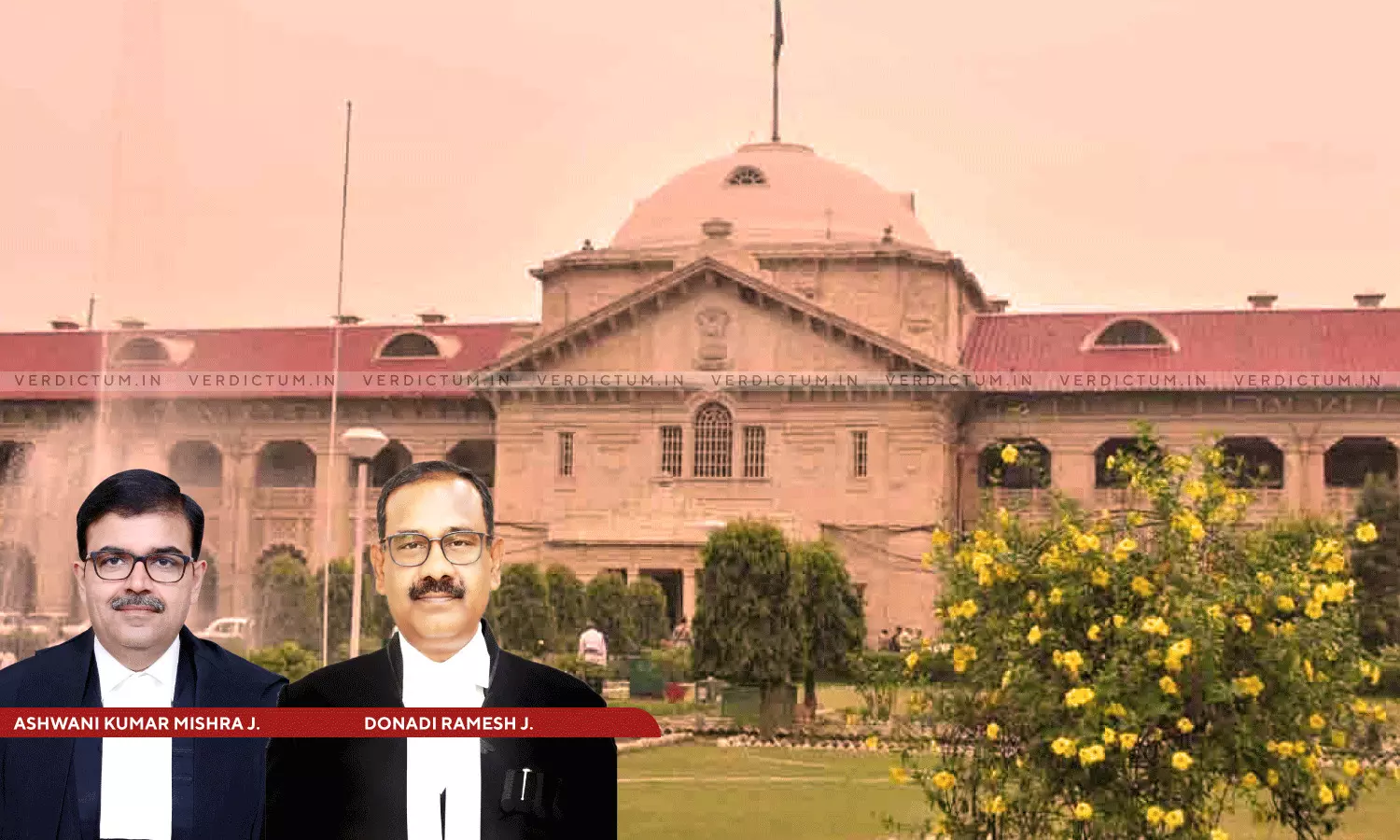
Supreme Court: Justice Ashwani Kumar Mishra and Justice Donadi Ramesh
Correctness Of Adverse Material Can’t Be Examined: Allahabad High Court Dismisses Plea Of Judicial Officer Challenging His Compulsory Retirement
 |
|At the time of passing of Order of compulsory retirement, the Petitioner before the Allahabad High Court, was posted as Special Judge (SC/ST Act) at Kaushambi.
The Allahabad High Court has dismissed the Writ Petition preferred by a Judicial Officer who challenged the Order of his compulsory retirement.
At the time of passing of such Order, he was posted as Special Judge (Scheduled Caste and Scheduled Tribe Prevention of Atrocities Act) at Kaushambi.
A Division Bench comprising Justice Ashwani Kumar Mishra and Justice Donadi Ramesh observed, “After analysing the facts of the case and the judgments referred to above, we have no hesitation in holding that there did exist adverse material in the service record of the petitioner on the strength on which subjective satisfaction could have been formed to come to the conclusion that the petitioner is liable to be compulsorily retired. Law is well settled that sufficiency or otherwise of such material cannot be gone into in writ. Correctness or otherwise of the adverse material also cannot be examined when such entries have attained finality.”
The Petitioner – Ramesh Kumar Yadav appeared in person while Advocate Ashish Mishra appeared for the Respondents.
Facts of the Case
The Petitioner was initially appointed as Munsif/Civil Judge (Junior Division) in 2001 and was promoted as Civil Judge (Senior Division) in 2006. He was granted further promotion to the Higher Judicial Service under Rule 22(1) of the U.P. Higher Judicial Service Rules, 1975. He would have attained the age of superannuation in February 2026, however, his tenure was curtailed on account of an Order passed by the State Government in 2021, compulsorily retiring him from service by resorting to powers under the Financial Hand Book (Vol. II, Part II to IV) read with amended fundamental Rule 56(C). At the time of passing of such Order, the Petitioner was posted as Special Judge (SC/ST Act) at Kaushambi. Hence, he assailed this Order of compulsory retirement before the High Court via Writ Petition.
Reasoning
The High Court after hearing the arguments from both sides, noted, “… the adverse remark of the Administrative Judge has attained finality. The correctness or otherwise of the adverse remark of the learned Administrative Judge for the year 2008-09 cannot be commented upon in the present writ petition, particularly when adverse remark itself is not under challenge before us.”
The Court said that the adverse remark recorded by Administrative Judge against the Petitioner for the year 2008-09 exists on record and was a relevant material to be taken note of by the Screening Committee for recommending compulsory retirement of the Petitioner.
“Similarly, correctness or otherwise of the advisory issued to the petitioner cannot be commented upon in the present writ when such advisory is not under challenge. Though the advisory in itself may not constitute material adverse to pass order of compulsory retirement but when the entire service record of the petitioner is being examined, such material can be looked into for the formation of opinion regarding desirability to compulsorily retire the petitioner”, it added.
The Court further held that the material adverse against the Petitioner did exist on record to form an opinion by the Screening Committee that he is liable to be compulsorily retired.
“The decision taken by the Full Court and the consequential decision of the State Government to compulsorily retire the petitioner, therefore, warrants no interference. This is particularly so, as the petitioner is a Judicial Officer, who acts on behalf of the State in discharge of its sovereign function”, it also observed.
The Court was of the view that the ordinary litigant must have complete faith in the judicial system and no impression can be afforded to be given to a litigant which may even remotely create perception against the justice delivery system.
“There is otherwise no allegation of any bias or malafide against the members of Screening Committee nor is it shown that the subjective opinion of the Screening Committee is based upon no evidence. In such circumstances, the order impugned compulsorily retiring the petitioner merits no interference”, it concluded.
Accordingly, the High Court dismissed the Writ Petition.
Cause Title- Ramesh Kumar Yadav v. High Court of Judicature at Allahabad and 2 Others (Neutral Citation: 2025:AHC:60142-DB)